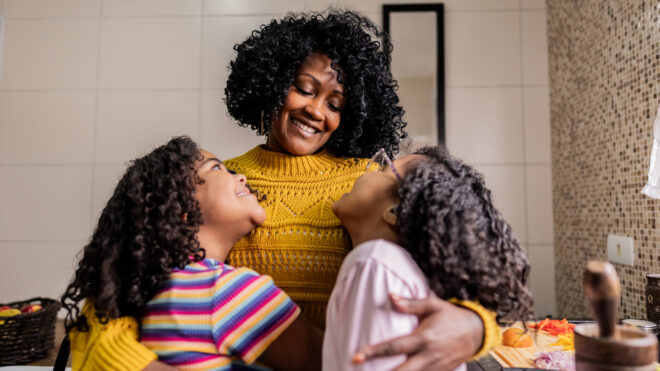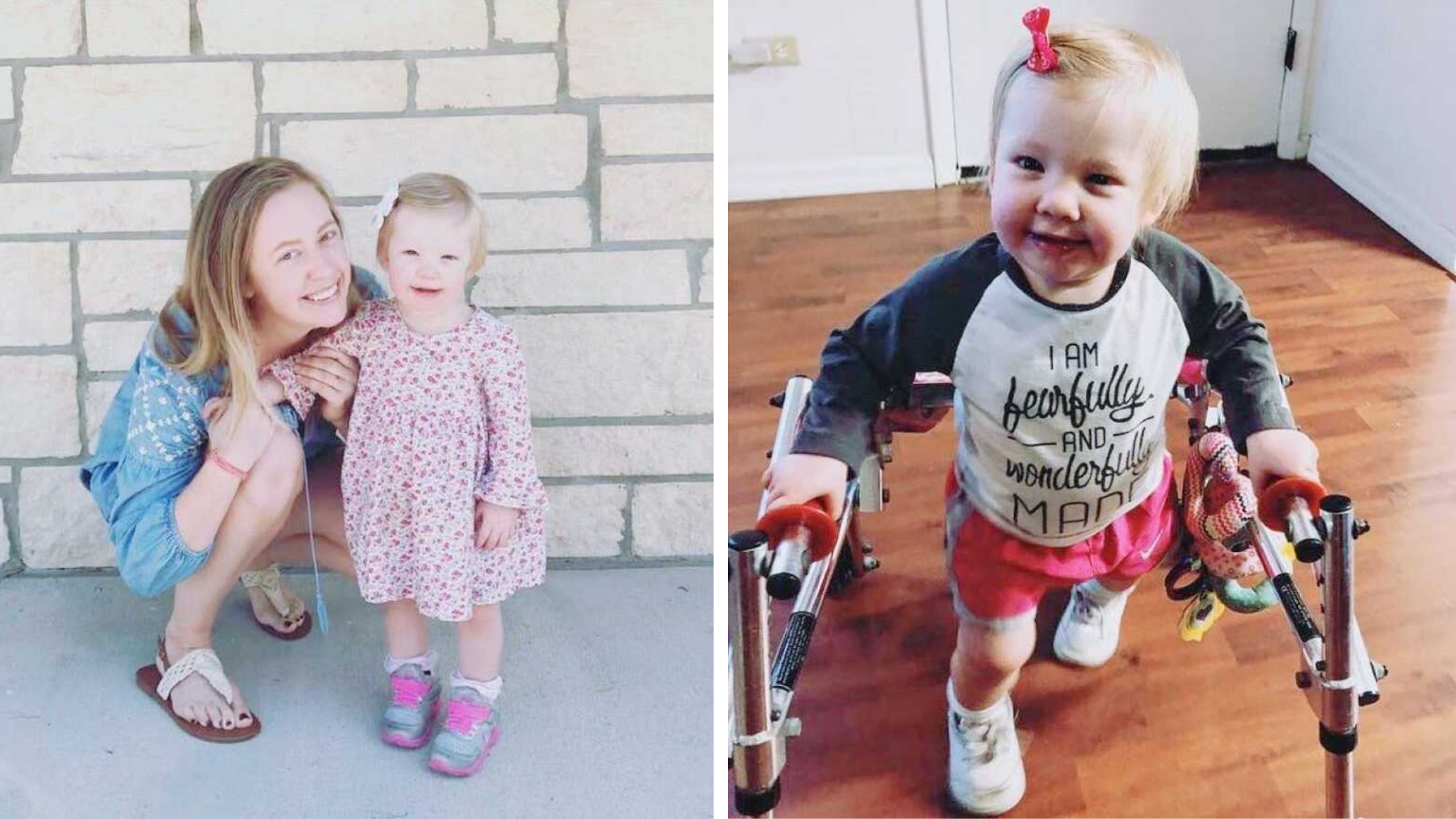
It was a Wednesday evening, just like any other Wednesday. I was giving Charley a bath, running through my mental checklist – pick out outfits for tomorrow, pack lunches and backpacks, don’t forget extra snacks for the drive home. Somehow, I’ve let our drive home become snack time and the crumb situation under those car seats is disgusting.
The phone rings. "Why does that number look familiar?"
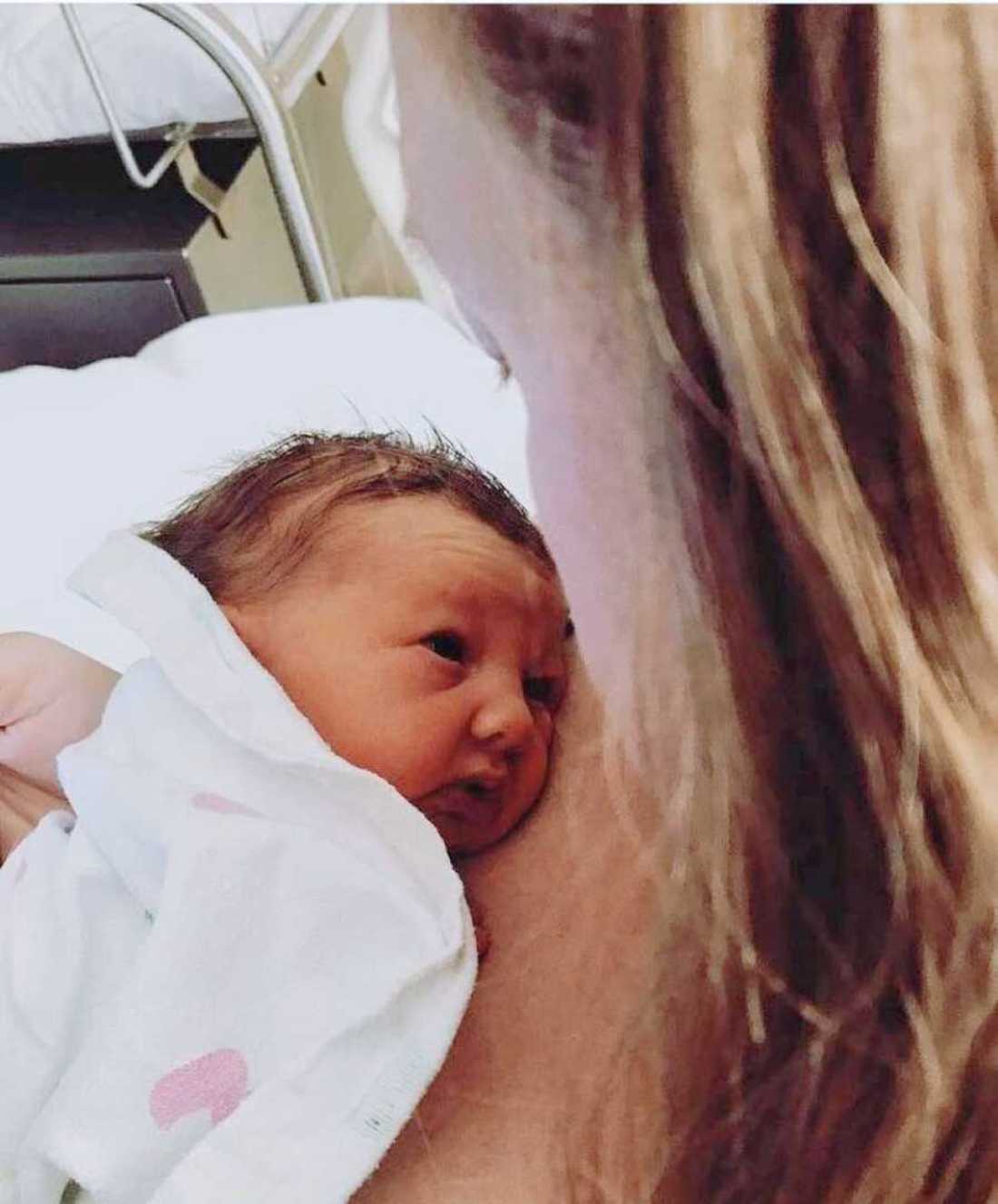
I answer. It’s the geneticist. He wants to see us tomorrow to discuss the results of her most recent genetic test. "So are you telling me the test is not negative?" I ask. "Yes. It is not negative. We have answers for you, but I need to do some more research before I can discuss the results. Can you come in tomorrow at 3:00?" I say yes. We hang up. I look at the time. 6:45 p.m. Why would he call at 6:45? Why wouldn’t he wait until morning? Oh God. It must be terminal. Please God, don’t let it be terminal!
I held my baby girl tight that night and begged God to let me keep her for the rest of my life.
Then I wondered if it was a selfish prayer. Maybe it would be better for her if her diagnosis did mean an earlier death. Then she wouldn’t have to go live in a group home after Nathan and I die. Then I wouldn’t have to worry about her being mistreated or taken advantage of after I’m gone. The thoughts kept coming. All the what if’s. All the tears.
I laid my sweet girl down in her crib, cried with my husband, then went to bed to be alone.
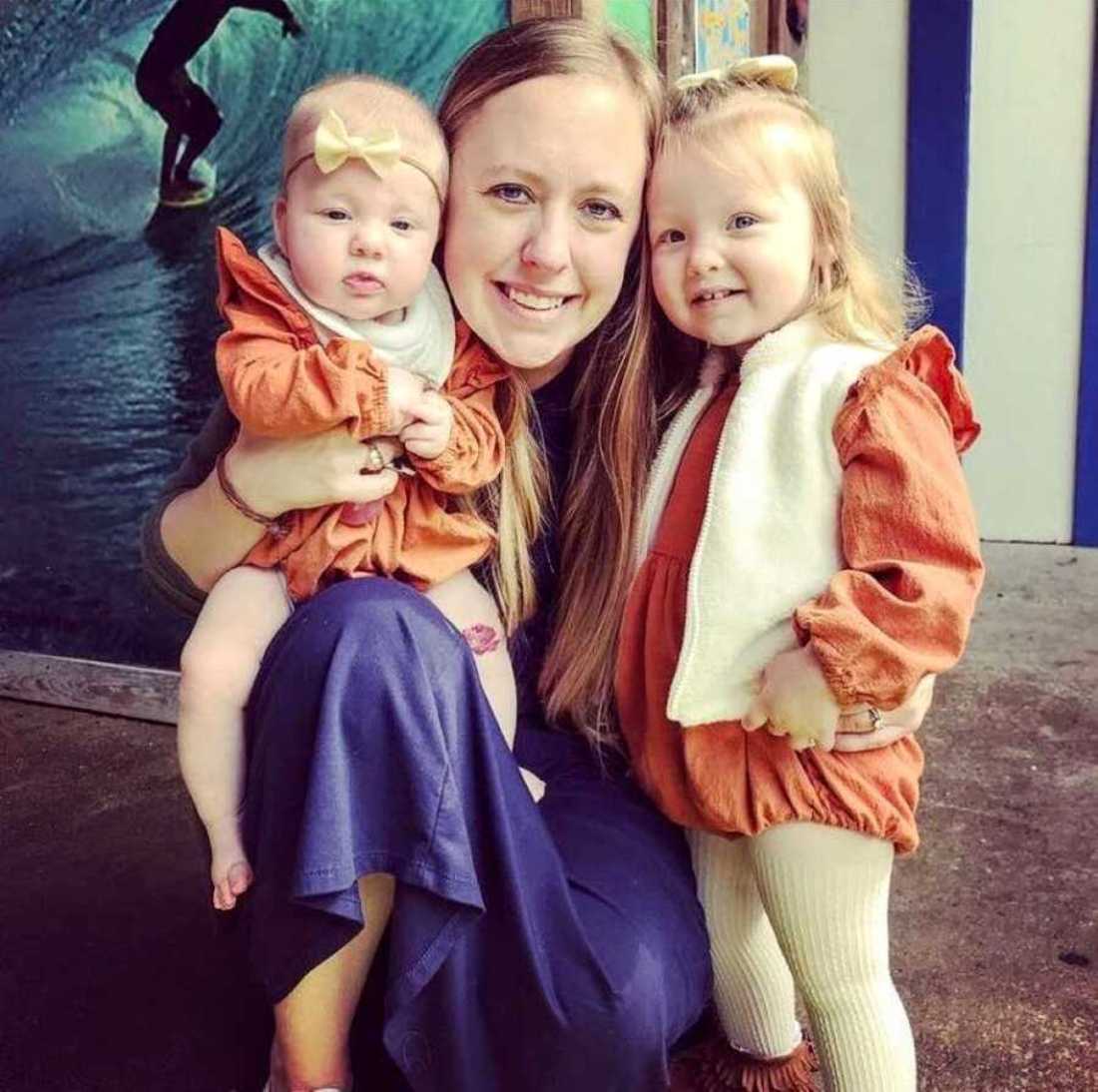
My heart was racing and the thoughts wouldn’t stop. I turned on some worship music, took my anxiety meds, and was asleep by 8:30 p.m.
The next day was a roller coaster of emotions. I took Charley to school and went to my parents’ house to wait. I let Whitley watch TV all day, had lunch delivered, and I slept. I slept all day and still felt exhausted. 3 p.m. came. Nathan met us at the geneticist’s office and we waited for what seemed like an hour, but was probably only a few minutes.
A resident sat in the room to observe. He asked to see her hands.
They discussed how her pinky nails were "normal" and her eyebrows weren’t bushy. They asked us if she had any issues with her heart or kidneys to which we answered "No." Then finally, he handed me a stack of papers and explained Charley has a mutation on the gene ARID1B. He talked about something called Coffin-Siris syndrome and explained she is the only person he knows of with this specific mutation.
Rare. Intellectual disability. Communication will be a struggle.
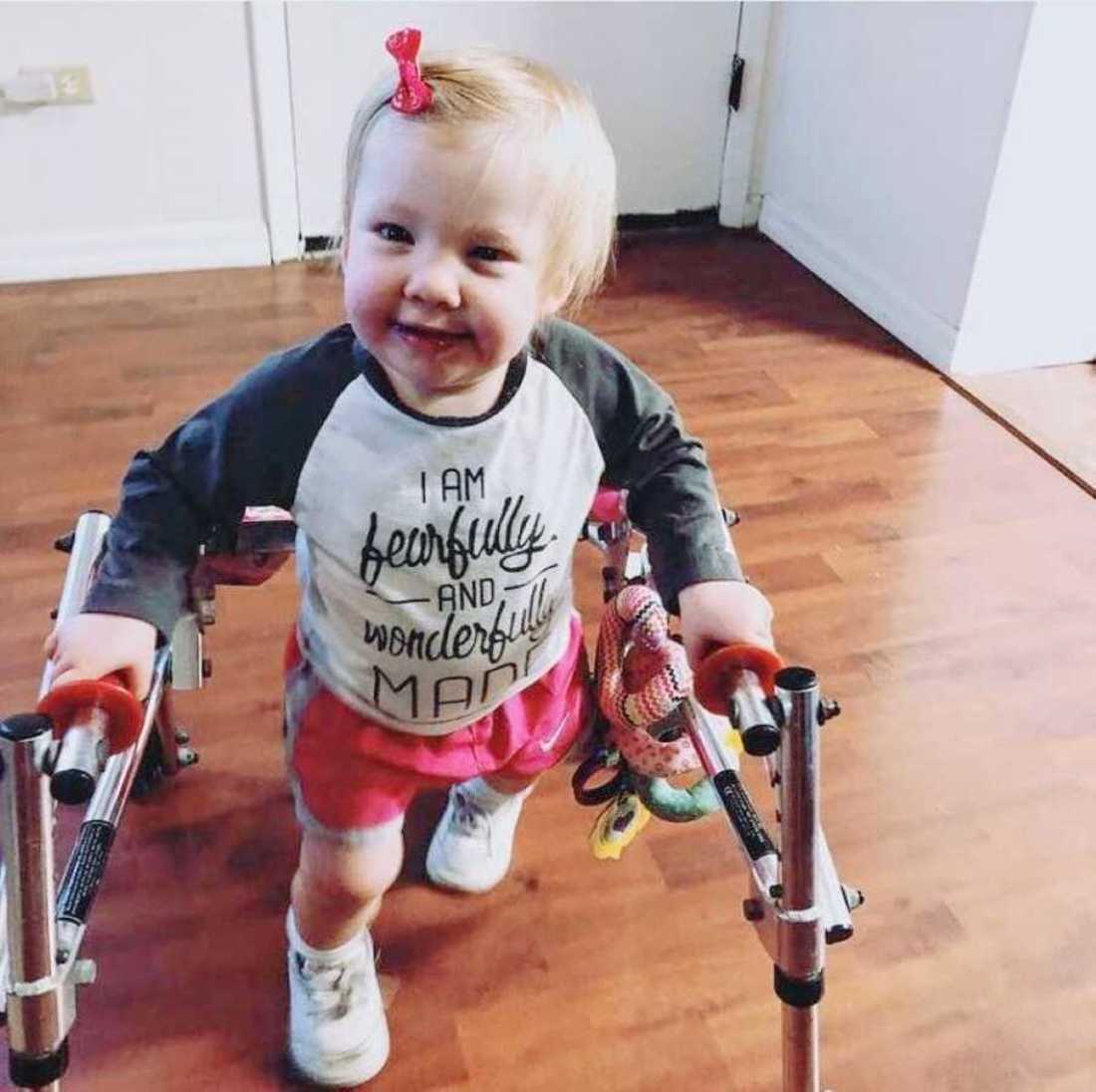
He told us about a 6-year-old girl with a mutation close to hers. She walked at 24 months (the same as Charley) and at 6 years old she was saying a few one-syllable words. He told us her life expectancy wouldn’t be affected. "Not terminal," I thought. "Thank you God."
She needs to have her vision and hearing screened annually. Hearing loss is common.
So is autism. And she might be nonverbal. We needed to look into communication devices. She needed to have her heart and kidneys checked and there were other things we needed to watch for. She may learn words and signs and then not be able to retain them … "Yup," I thought, "We’ve already seen that to be true."
The rest of the appointment was a blur.
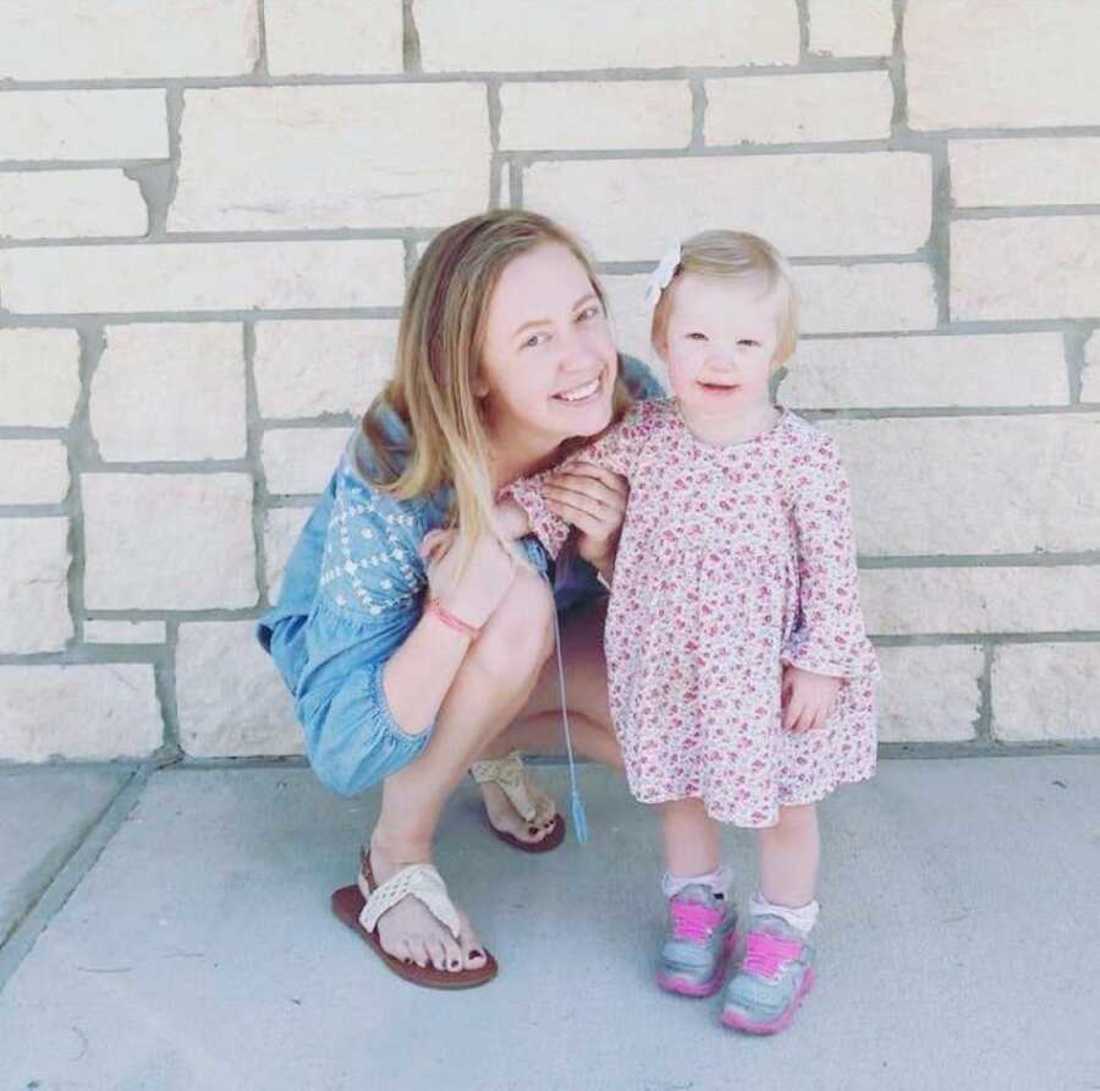
I sent Charley to run errands with Nathan, then I sat in the parking garage and typed up a text to send to family and close friends. I went back to my parents’ house, laid on their bed, and read everything the doctor had given us.
I read and read and when I was done reading the packets, I got on the internet.
I joined support groups and found a registry. I learned about therapies and treatments and doctors and I read every post I could find about the other ARID1B kids and adults on the Coffin-Siris syndrome parent group. I did this all weekend. I let the girls watch way too much TV and I researched and worried and when the thoughts started to overwhelm me, I slept. I was asleep by 8:30 on Friday and 7:45 on Saturday, yet somehow I still felt exhausted.
On Sunday morning, Charley woke up with a cough and runny nose and Whitley dropped a stepstool on her big toe and refused to put a shoe on it, so Nathan stayed home with the girls and I went to church alone.

I sat down in my Sunday School class and immediately knew I wasn’t going to be OK. The thoughts came flooding in, but this time I didn’t have research to distract myself with and I couldn’t take a nap.
I listened to my friends talk about how good our God is and I thought, "This doesn’t feel good." I looked around and saw the other amazing special needs’ mamas in our group and thought: "I don’t want to be part of their club. I can’t do this. They can, but I can’t." I looked at all the other moms whose kids are healthy and neurotypical and felt jealous and angry — not at them, but at God.
And then it hit me. The tears flooded my face and the sobbing was loud and uncontrollable.
I don’t even remember what I said, but my church family surrounded me, wept with me, and prayed over me and my precious little family. They told me it was OK to not be OK. They said God could handle my anger. They said it was OK to grieve. So grieve I did. And grieve I am doing.
If I’m honest, I’ve been grieving for a year now.
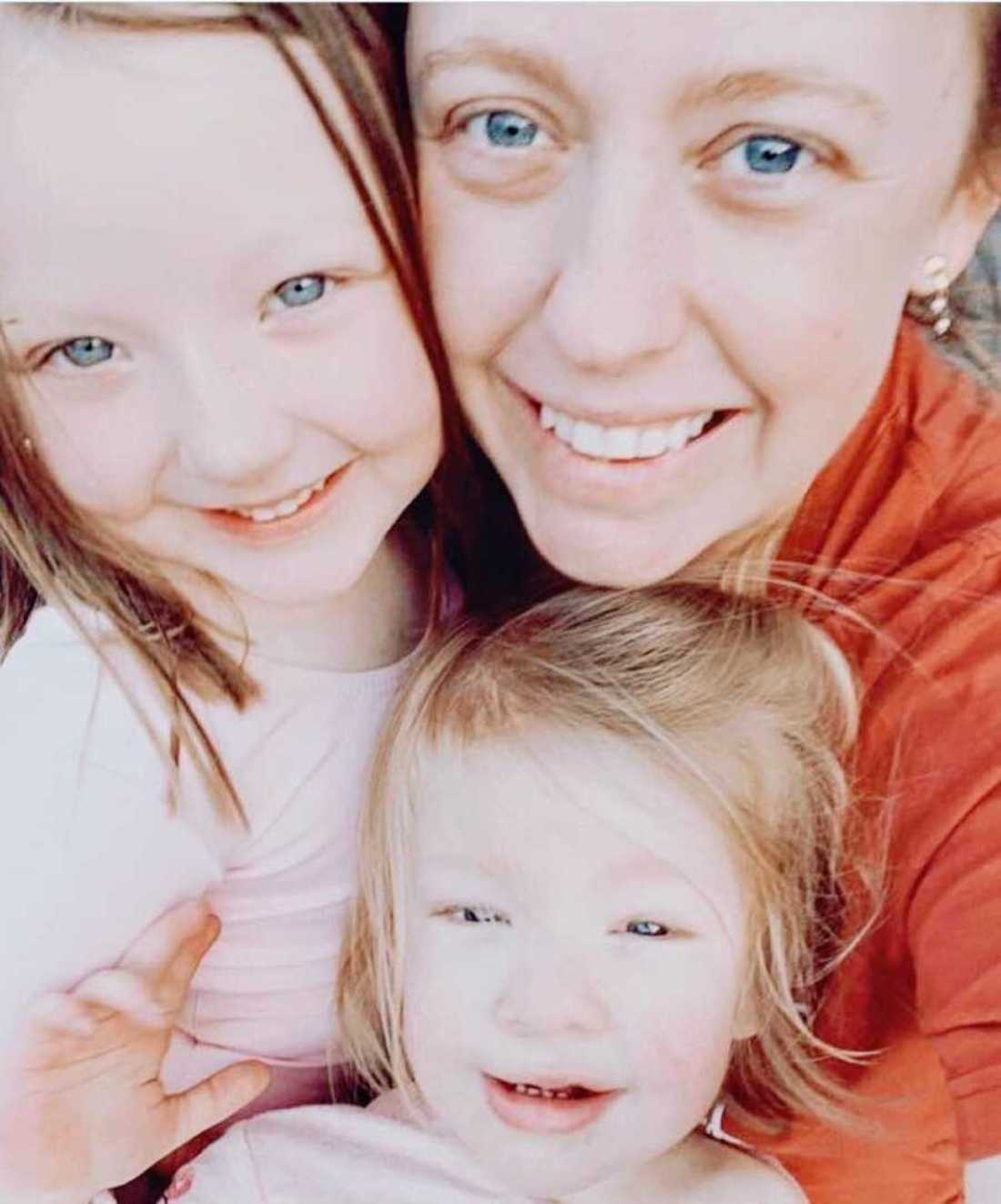
I’ve been going back and forth between denial and acceptance, but deep down I knew there was something going on. I knew Charley’s story would be different and so would mine.
I thought a diagnosis would put an end to the grief. The questions would be answered and the uncertainty would be gone. We’d have ideas of what to expect and we’d make a plan for the future. It turns out, however, the diagnosis just closed the door on denial and opened up the door for all the other stages of grief to creep into my heart. Lots of anger. Extreme sadness. Moments of acceptance followed by moments of pain and depression.
My feelings are raw and deep. My thoughts aren’t pretty or good. But my prayers usually do end in hope.
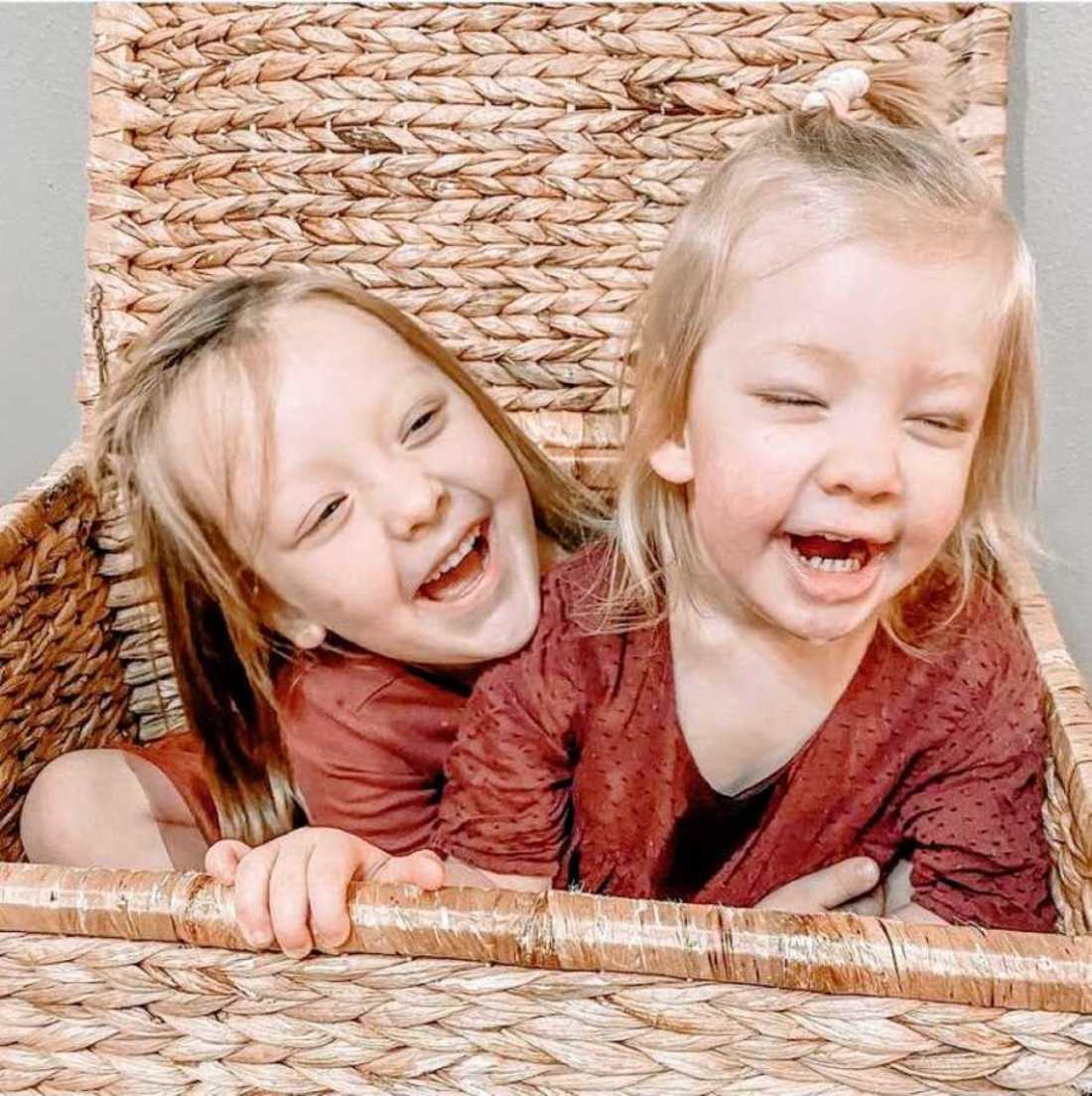
There’s this term among the special needs community. They call themselves "The Lucky Few." The lucky few who God calls on to raise these incredibly special people. It’s sweet and endearing and I know I am an incredibly blessed mama to get to love and be loved by my sweet baby girl. I know without a doubt she is not broken. I stopped praying for healing a long time ago because I know this is how God made her and I absolutely love the person He made her to be. Please hear me say I love my daughter, both of my daughters, exactly how they are and for who they are.
But can I also admit getting this diagnosis has been incredibly hard?
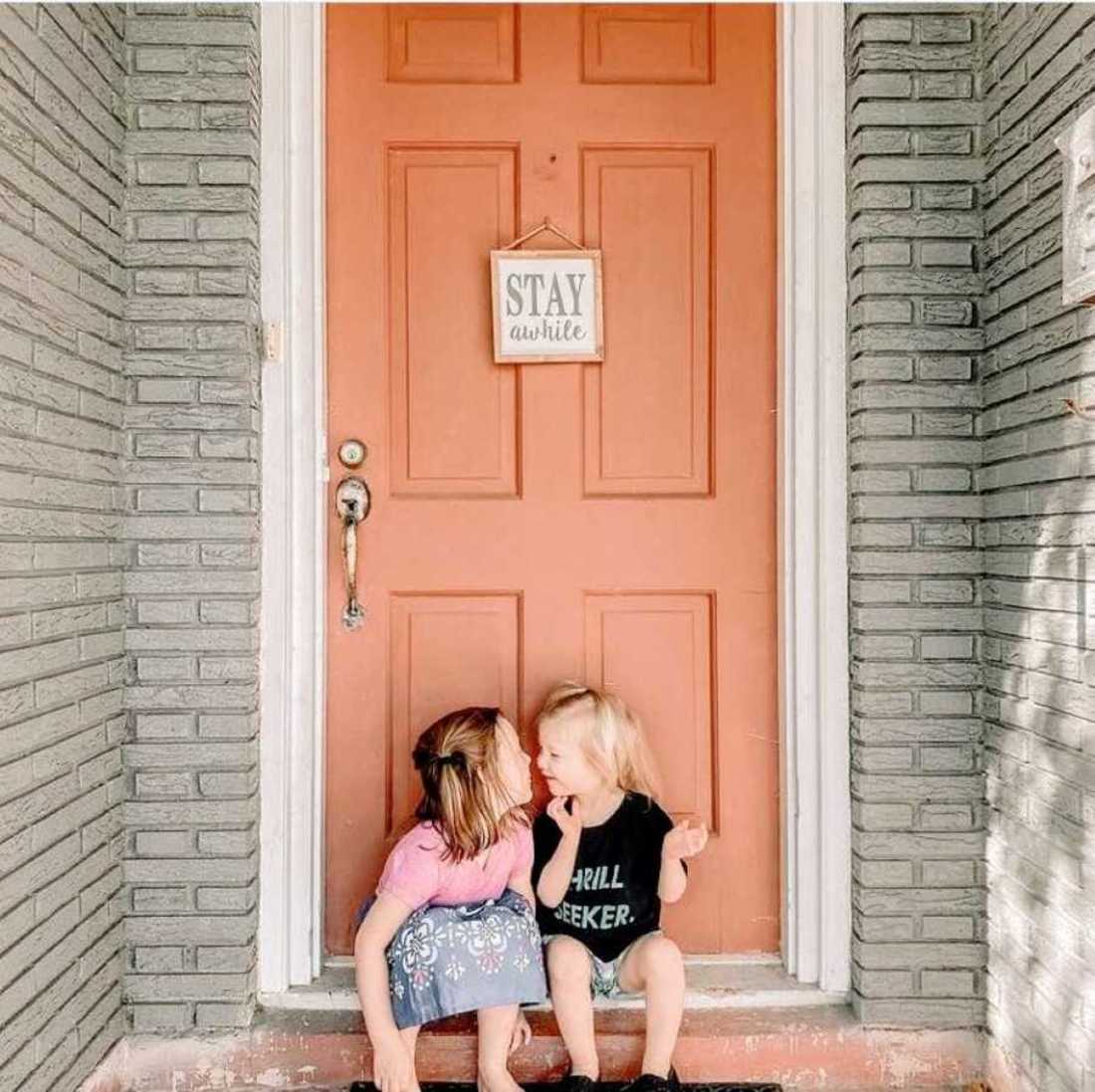
I had plans for my life and hers. Good plans. College, marriage, grandbabies, retiring and traveling the world alone with my husband. I thought I’d hear her sweet voice say she loves me by now. Now I know that likely won’t happen for a few more years, if at all. I thought my girls would be best friends just like my sister and I are. Now I know their relationship will be precious and beautiful, but much different than I’d imagined.
Can I encourage you with this?
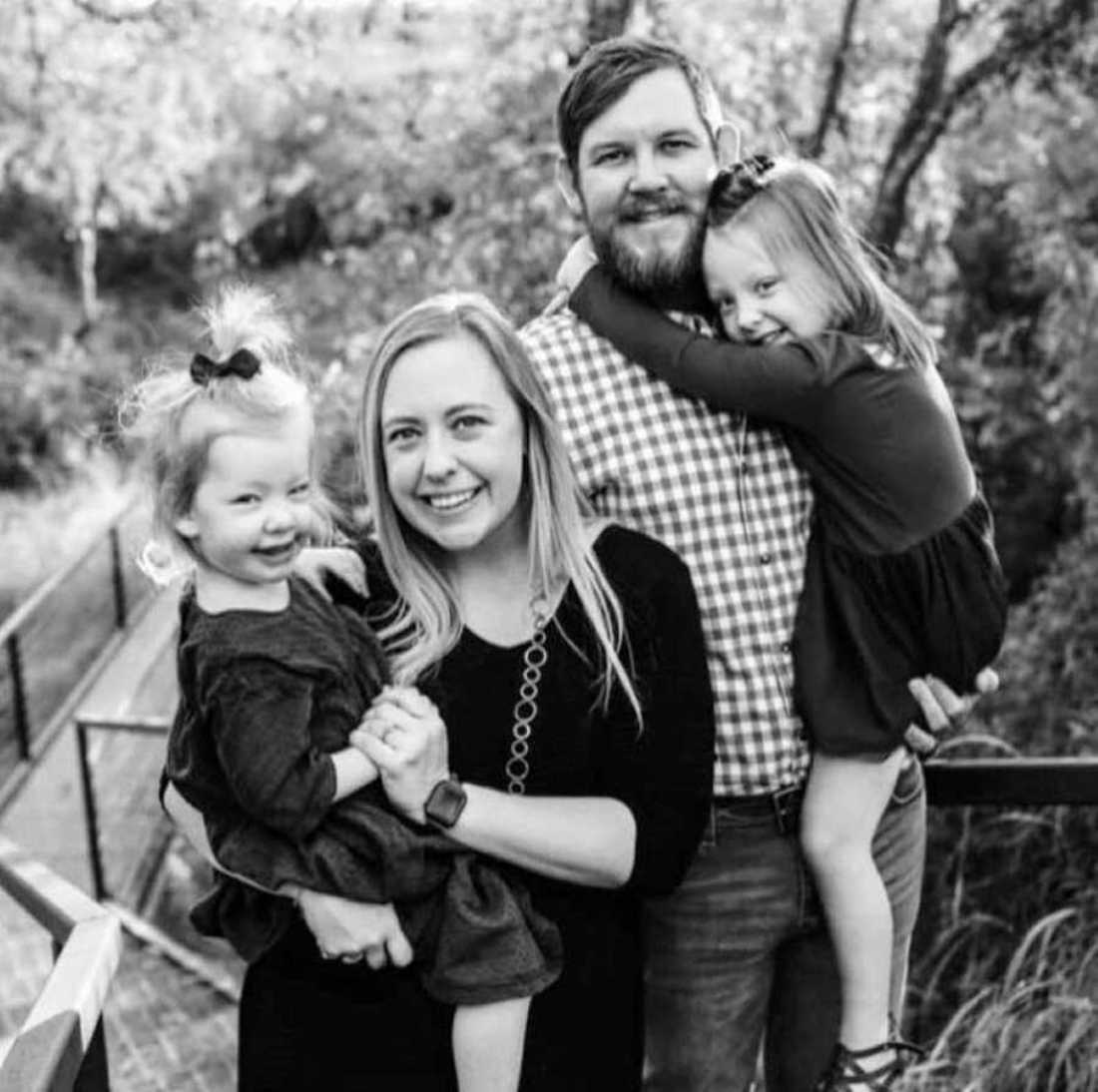
If it feels like your world is falling apart, like God is ripping away the good plans you made, it’s because His plans are better. I promise they are. It’s OK to be sad. It’s OK to not be OK. But don’t stay there. Let go of the life you planned for yourself and ask the Lord to help you embrace the life He has given you.
It’s a painful but sanctifying process.
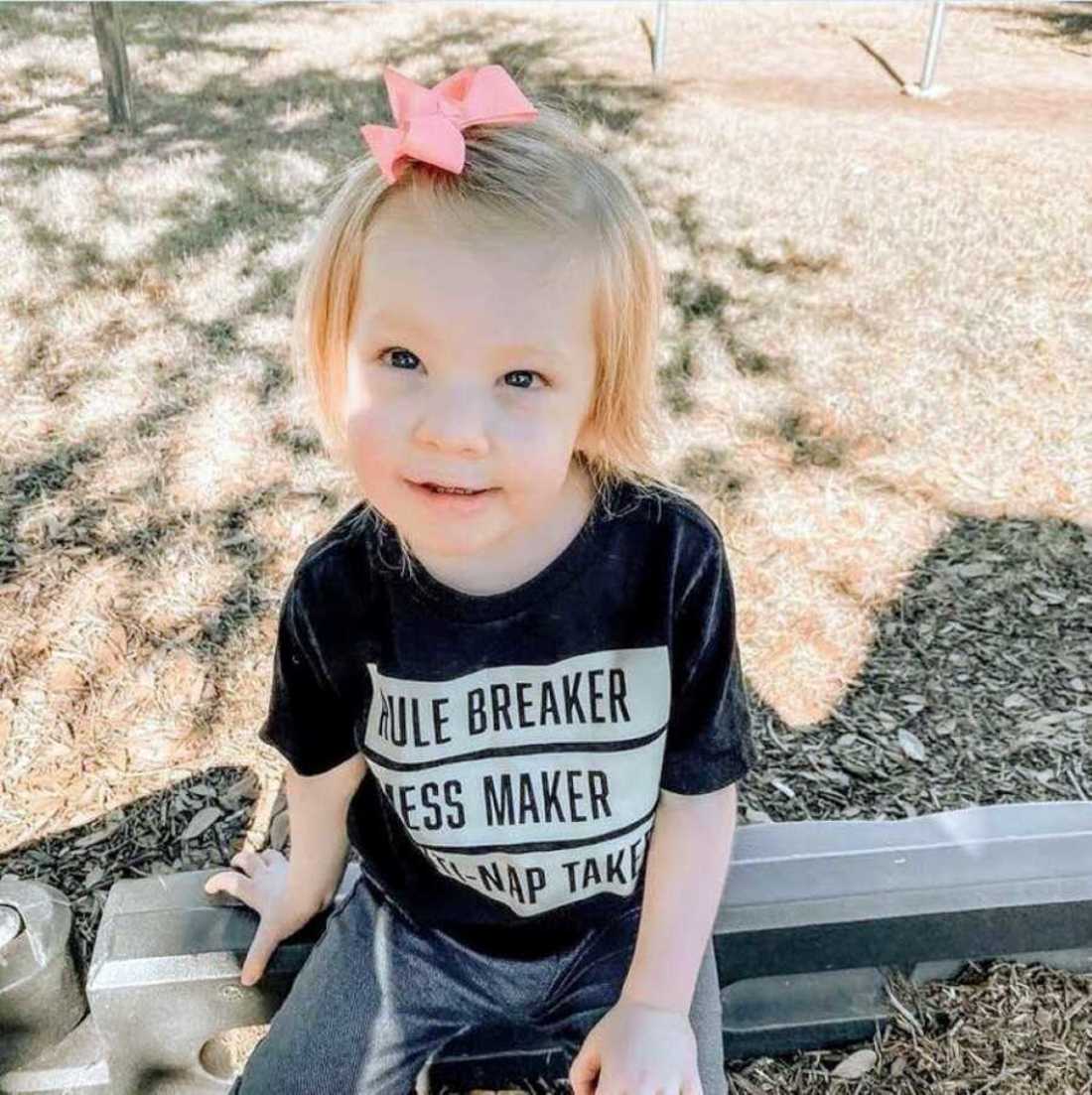
You will hurt deeply, but you will come out loving God more intimately and looking more like Jesus because of it. And isn’t that what life is all about? "For I know the plans I have for you," declares the Lord, "Plans to prosper you and not to harm you, plans to give you hope and a future. Then you will call on me and come and pray to me, and I will listen to you. You will seek me and find me when you seek me with all your heart." Jeremiah 29:11-13 "And we know that in all things God works for the good of those who love him, who have been called according to his purpose." Romans 8:28.
This essay was republished with permission and was written by Madeline Webb. You can follow her journey on Instagram and Facebook.


